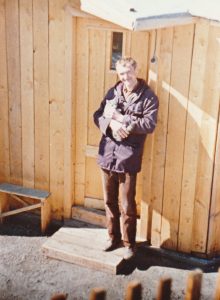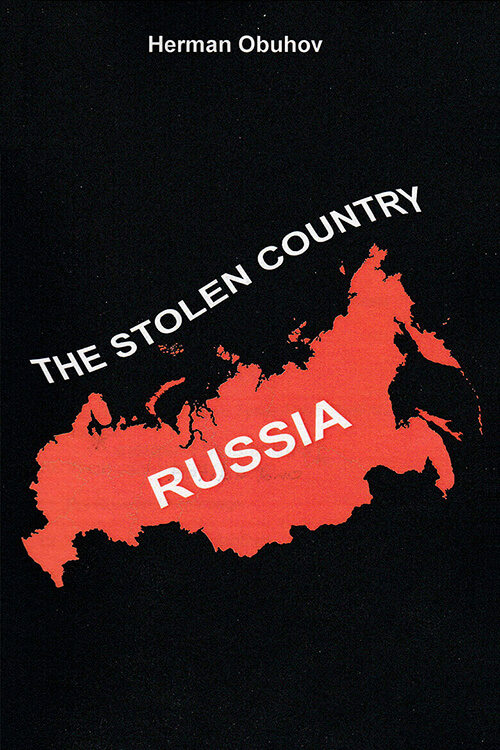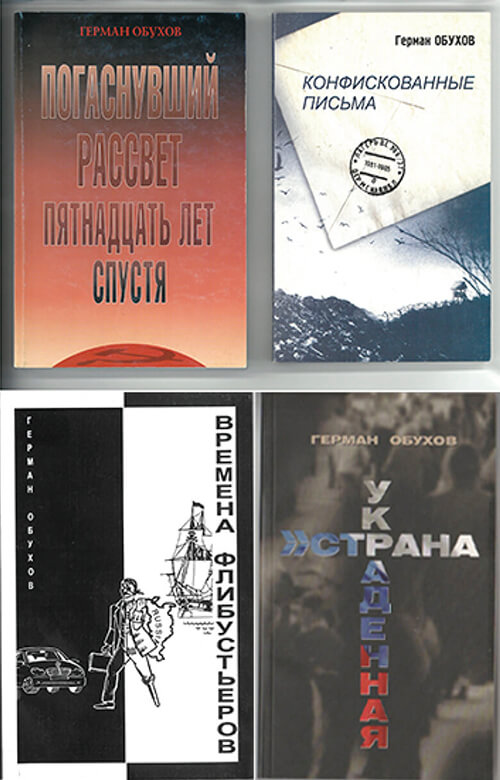Once the sun began to shine in May, I offered my help tothe Head of Village Housing and Utility Services to solve the housing issue. He immediately offered me an absolutely ramshackle house with a leaky roof and somewhat broken windows that had previously been occupied by exiled criminals. I had no choice but to accept the offer, but put forth a precondition that they would give me all the building materials required for repair, and an assistantonce in a while.
There were four small rooms in the house, a furnace that heated all the rooms, and two doors –a front door and a door to the farthest room, suitable for a bedroom. There was a regular earth closet and water was delivered in a water tank by a GAZ car and poured into barrels near the houses. There was no progress on the building materials even two weeks after I moved in, they delivered several clapboards and that was it. I got angry because the summer was short and there was a lot of work to do.One fine day, I decided not to go to work, so when a timber industry enterprise’s truck came to pick me up (the whole village already knew where I lived) and the truck driver said,“Hey boss (all the drivers called me‘boss’), let’s go to the gas station”, he heard an utterly impossible answer.
“Tell the authorities that I went on strike until they provide me with building materials.”
The truck driver was left speechless and drove off. About an hour later, the KGB Captain from the local office flew into my house and shouted right away,
“Herman Viktorovich, what do you think you are doing? Head to work immediately or the whole timber company will stop because of you!”
“The housing and utility services promised to provide me with building materials and they haven’t yet,” I replied calmly, “the summer is short here… and a strike is the only way for workers to fight for their rights.”
“They will supply these building materials to you,” the captain snapped,” go to work.”
I bought it, and the next day they did ship the clapboards to sheet the house and roofing paper to cover the roof. The house transformed in a month — sheeted with clapboard, with new windows, a new roof, a new toilet (albeit on the street), an ‘anteroom’ before the entranceto store firewood in winter, and a fence around the house. All villagers stopped by to look at what the political exile had made out of the flimsy house he was given. I gained a newfound respect in the village and made friends from local celebrities.

The interior of the house had also changed greatly. I trimmed all the rooms with clapboard, put a new wooden table, four chairs and a fridgein the dining room;a rented sofa and a TV in the living room; and,made a normal wooden bed with two mattresses and a small desk in the bedroom. I also hung many decorations sent by my relatives from Leningrad, who had received parcels from my new friends in England, Germany, Spain and other countries. I was the only one in the village who had such stuff And my quality of life had changed beyond recognition. The local fish farm foreman started bringing me crabs and red caviar in large cans in exchange for foreign souvenirs or vodka, which I did not drink, but bought once a week. Vodka was a kind of currency at that time – it was sold once a week, one bottle per customer, with an entry made in a special register. No one but me was wearing Puma sneakers, jeans and a jacket with a western logo. People stared insecret envy at the items that were not even sold in Khabarovsk.
Another political exile, a Roman Catholic priestfrom Lviv,came to the village in the middle of summer And we bonded right away. He met my new friends in the village – the family of a PE teacher, the family of a dentist, and a librarian, andwe started going over to see each other. Life had become more joyous and I decided to break the tee to taler vow – the lingonberry liquor, made here by everybody who could -happened to be very tasty. We celebrated the new 1987 year all together: the country was changing and everyone felt it. One Saturday in mid-March, my doorbell rang. When I opened the door I saw a respectable man in a sheepskin coat and a deerskin cap. He introduced himself,
“Petrov Sergei Ivanovich, KGB Colonel…. May I come in?”
I thought it wouldn’t be nice to turn down aColonel, even though he represented anunfriendly organization.
“Come in.”
When the Colonel came in the house, he immediately explained his appearance at my door.
“The Main KGB ofiice in Moscow sent me to you regardingan important matter.”
“Can the KGB Main office have any matters with a political exile?” I smiled ironically.
“Yes, it can. Can I sit down?” The Colonel was drawing me in to conversation.
“There’s a hanger to put your coat on. Have a seat,” I had to bite the bullet and stay diplomatic, “since you came all the way from Moscow, I should offer you tea. Your Leningrad colleagues always offered me tea during interrogations. It’s my turn to give back.”
The Colonel nodded in agreement. When we sat down at the table and I poured tea and put some English cookies, the Colonel got down to business.
“You see, Herman Viktorovich, the country’s leadership has decided to release all political prisoners in labor camps and exiles,” the Colonel continued, but I interrupted him,
“I’m sorry, Colonel, but there were no political prisoners in our country yesterday.”
“Yes, we used to hide this, but everything is changing,” the Colonel gave a wry smile, “so I have an offer for you: write a free-form application asking our management to allow you to return to your family in Leningrad. This is not a plea for mercy, it is only a request. It will be satisfied within two weeks and you will be at home by April.”
This made me a bit angry, but I gave no sign of such.
“Excuse me, Colonel, but what’s the point of me asking anything when I have only three months of this exile left?!”
“If you leave upon satisfaction of your request,” the Colonel explained, “your conviction will be removed from official records, and if you leave at the end of your term, it will be challenging to find a job and get residence registration in Leningrad, and so on.”
“I’m not interested,” I summed up briefly, but our conversation continued for another hour, but had no effect.
As if this wasn’t surprising enough, the most astonishing event happened two weeks after the Colonel from Moscow had paid his visit. The First Secretary of the Party District Committee pulled up at the gas station and asked me to come to his office when I finished work.
“I have an important question for you.”
“Well”, I thought, “if there is a question, I’ll come by.”
When I came to his office, I was not prepared for his question.
“What short comings do you see in the district administration operations and what would you advise us?”
The First Secretary of the District Committee of the CPSU asked a political exile for advice!
“What do you know?”, I thought, but I was quite explicit. All these political changes offered me a chance to go on vacation to Khabarovsk for nearly a month before the end of my exile. I handed over my well-kept house to one civilian who was thrilled with it.
“You are simply saving me, it’s more than I could hope for.”
They helped me check into the central hotel in Khabarovsk and I was allowed to go anywhere within the Khabarovsk Krai.However, I made a one-day illegal trip to Birobidzhan, the capital of the Jewish Autonomous Republic. Warm weather permittedpeople to sunbathe in the city suburbs and even swim in the Amur. I decided to go back by steamer from Khabarovsk to Nikolaevsk-on-Amur and then by plane to Ayan, overall it was a great trip. It took me two days to get a certificate of release and say goodbye to all my friends in Ayan.

